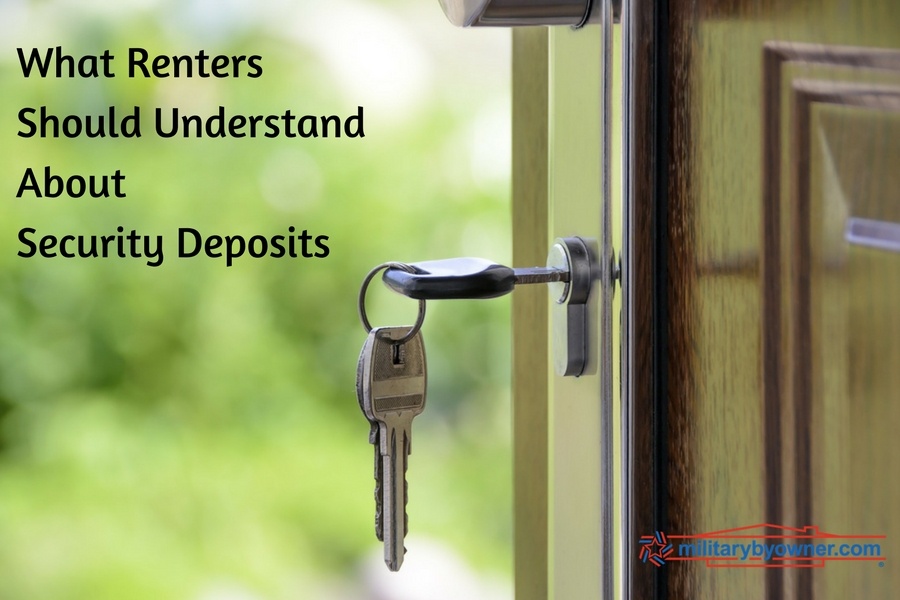What Renters Should Understand About Security Deposits
Have you given any thought to the rental security deposit you make? Probably not. I never did, either.
A security deposit is paid at the beginning of a lease and intended to cover damage to the rental property beyond normal wear and tear and to cushion the financial blow if you skip out early on the lease without paying.
As renters, we expect to make a security deposit, so we do it and move on without giving it another thought. But there is more behind that chunk of change than you might think.
4 Things Renters Should Understand About Security Deposits

1) There might be a financial cap.
Most of the time, landlords have a legal limit as to how much they can require as a deposit.
For example, in the state of Virginia, the security deposit must not be more than one to two months’ rent. California requires two months’ rent for unfurnished rentals and three months for furnished. They even go so far as to dictate that tenants who own a waterbed must also pay an additional half month’s rent. Meanwhile, Florida has no security deposit cap.
2) There is a deadline for your deposit to be returned to you.
Landlords have a legal obligation to return your security deposit within a specified number of days. This number is determined by the state you live in.
For instance, in Florida, your landlord has between 15 to 60 days to give you you back your deposit. Virginia is a bit more strict and gives the landlord only 45 days, while California requires the return within 21 days.
3) Your deposit might accrue interest.
I have yet to build interest on a rental security deposit, but some states actually require it.
Florida does not require the security deposit to collect interest during the tenancy. However, the landlord must disclose in writing if the deposit is held in an interest-bearing account, along with the rate and time of the interest payment.
Virginia requires that the landlord must pay interest on your security deposit at an annual rate of 4% below the Federal Reserve Board rate as of January 1st each year. But it’s only payable if you hold tenancy for 13 months or longer.
The state of California does not require interest be paid; however, some cities do.
4) It’s your job to protect it.
We often pay our deposit and leave it to the mercy of our landlord to return it. But there are two things you can do to ensure you get the most out of your return.
Know the law. While I used only three states as examples in this article, you can look up your current state rental laws at NOLO, Security Deposit Limits and Deadlines in Your State. Be sure that you keep your landlord accountable and do not pay more than is required by law.
Conduct thorough inspections. Since the whole point of a security deposit is to offset the cost of damages, document pre-existing ones immediately. You should make sure your landlord acknowledges them, too. You can even go so far as to take photos. This might feel a little overbearing, but I think you’d agree that paying for damages you didn’t cause would be infuriating.
You will also want to be present for the inspection after you move out, because you certainly don’t want to pay for things that aren’t actually damaged. Being present for inspections, both before and after, lets you communicate with your landlord and make certain that you’re both on the same page.
There’s no avoiding paying your rental security deposit, but you can avoid paying more than necessary. That’s why it’s important you understand why you pay it, the state laws addressing it, and how you can protect it!
Sources:
- CA.Gov: Refunds of Security Deposits
- Online Sunshine: The 2016 Florida Statutes
- Virginia Law: Code of Virginia





